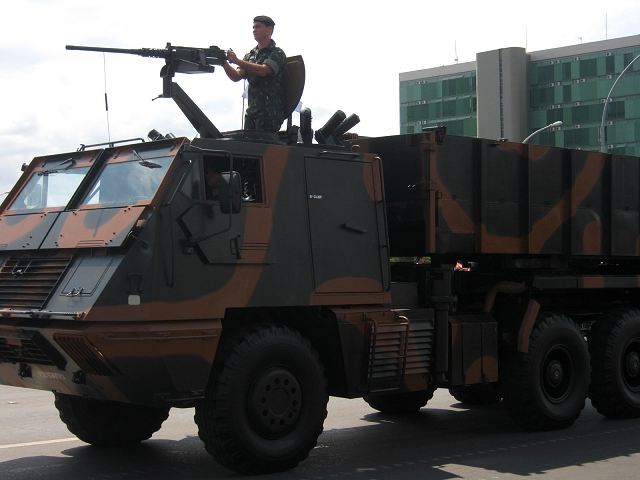Breaking news
Brazilian army will continue the upgrade program of its rocket launcher systems ASTROS 2912122.
| a | |||
Defence News - Brazil |
|||
| |
|||
| Saturday, December 29, 2012, 10:34 AM | |||
| Brazilian army will continue the upgrade program of its rocket launcher systems ASTROS. | |||
Brazil
wil continue to invest defence budget to upgrade and modernize its precision
strike technologies with the aim of developing rockets and missiles both
for domestic military use and exports. A budget of $480 million initial
outlay by the Defense Ministry is focused on updating Avibras' ASTROS,
acronym for Artillery SaTuration ROcket System, which is able to launching
multiple rockets. |
|||
 Brazilian ASTROS II launchers during the 2009 Independence Day Parade in Brasília, Brazil (September 7th, 2009). |
|||
At the end of August 2011,
Brazil’s Ministerio da Defesa announced the beginning of a BRL
1.09 billion (about $685 million) project to update Avibras’ ASTROS
(Artillery SaTuration ROcket System) multiple rocket launcher system
to the ASTROS 2020 configuration. It will also develop a GPS-guided
short-range rocket, and an AV-TM300 missile option that gives the new
system a 300 km strike range. |
|||


























